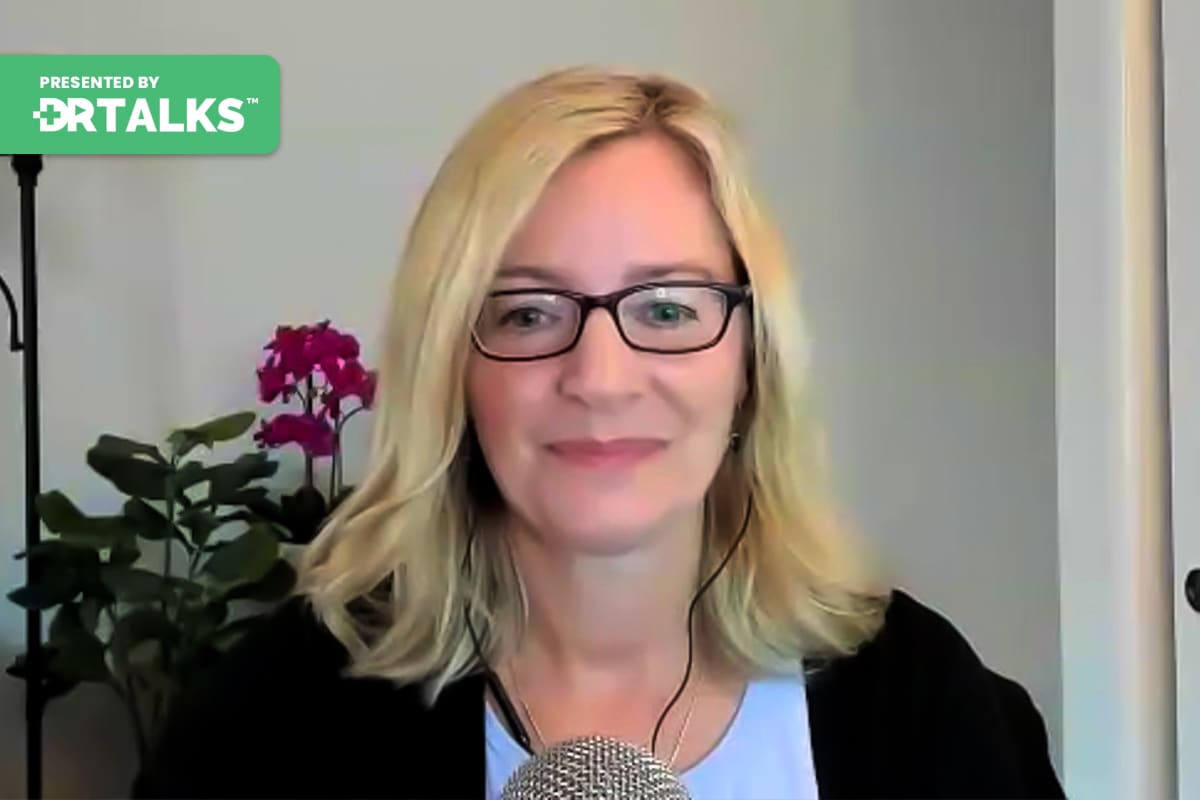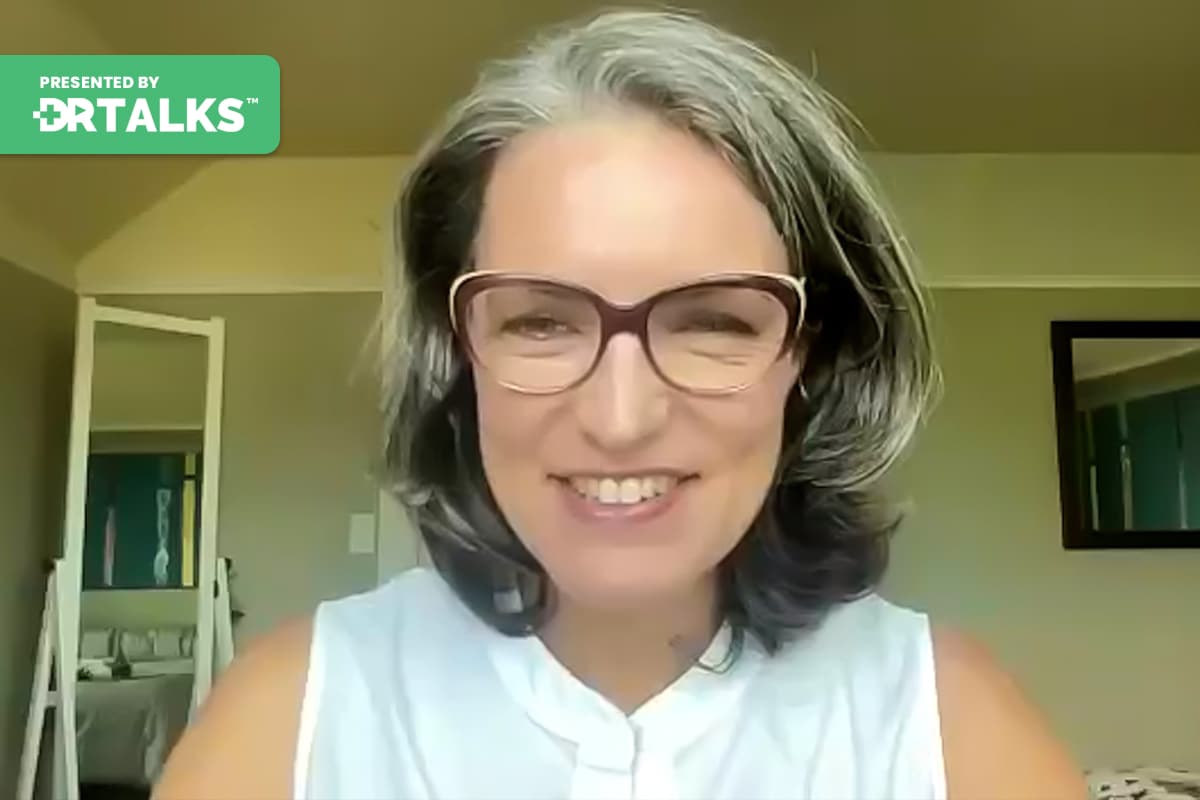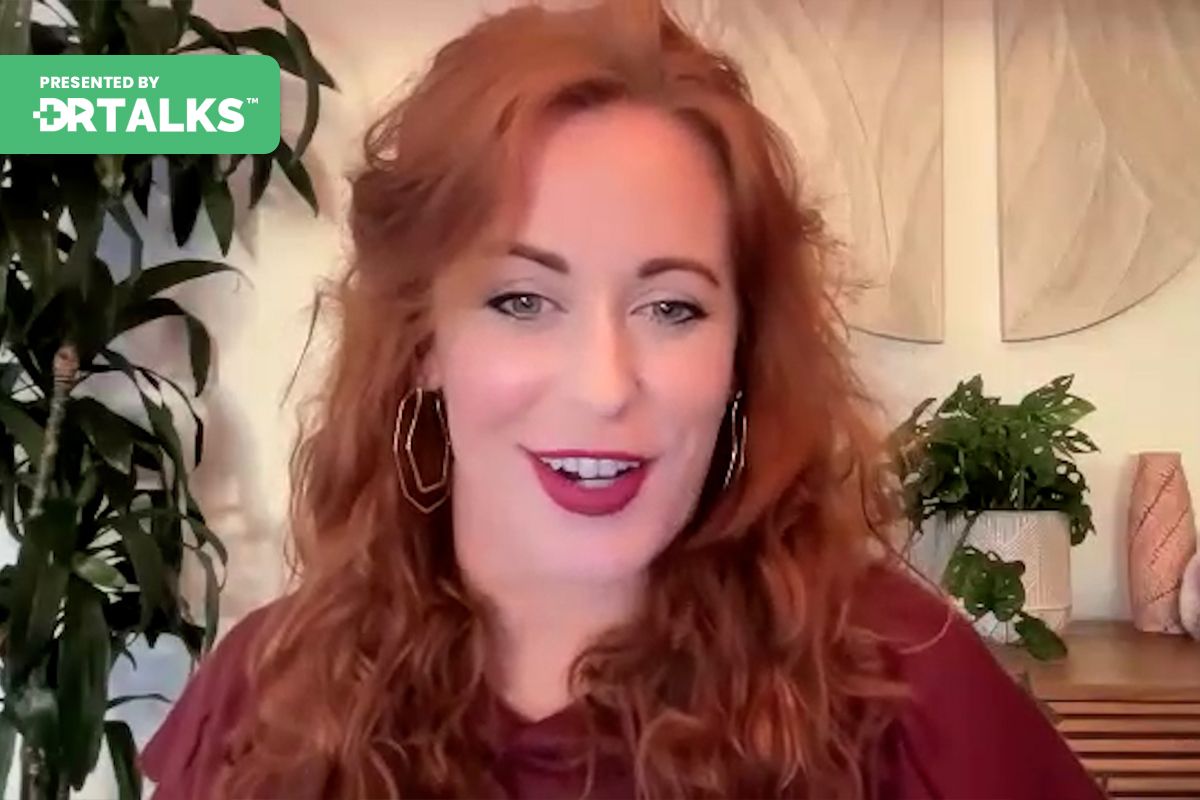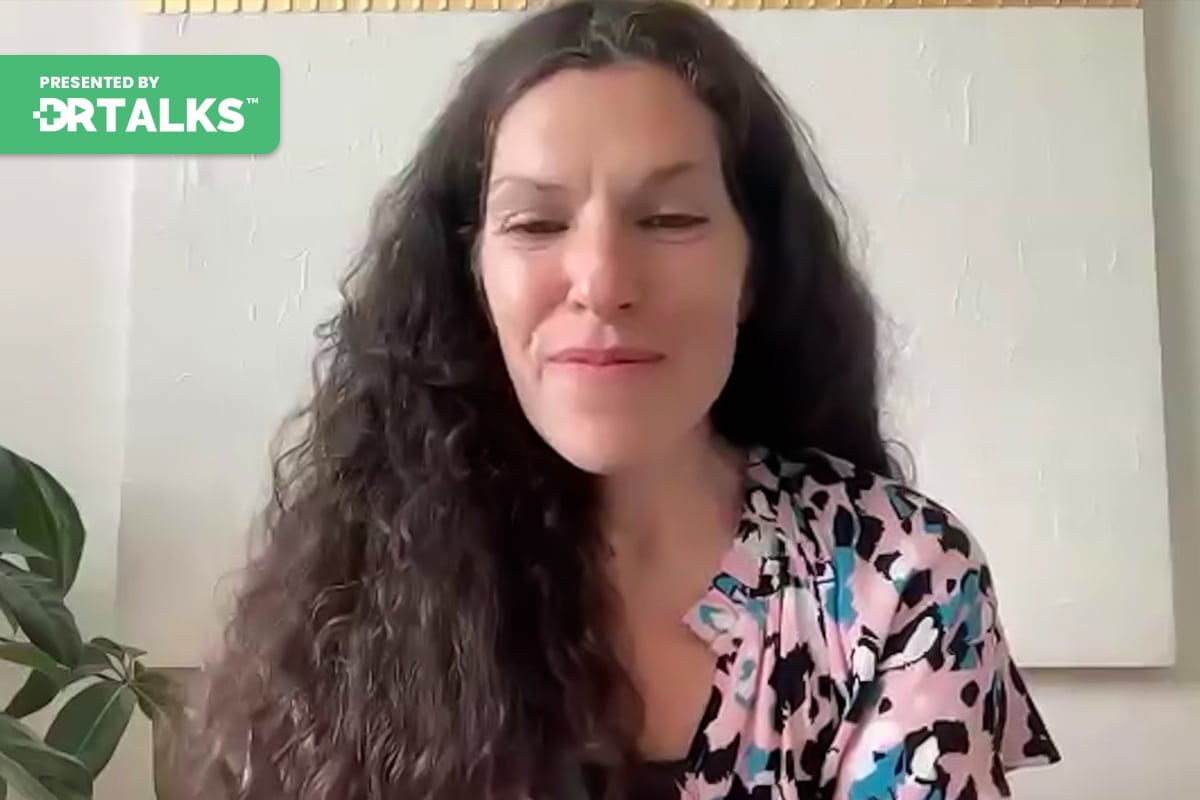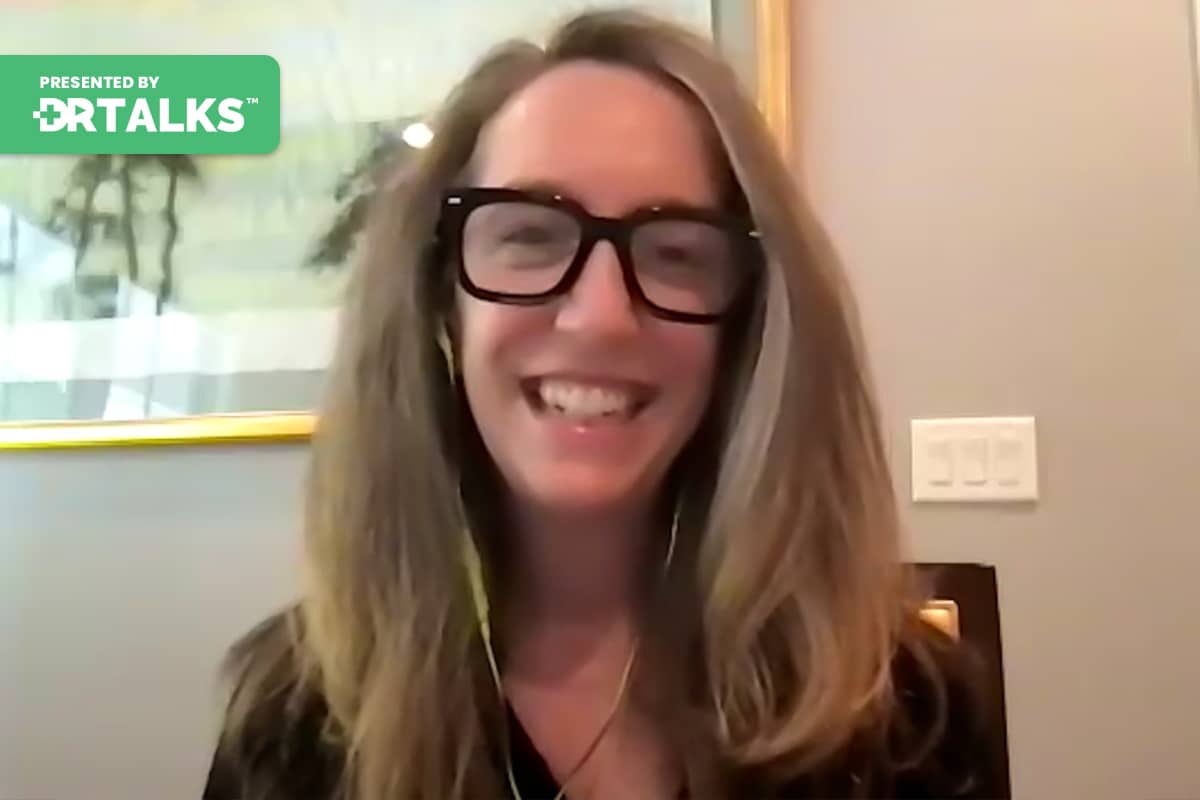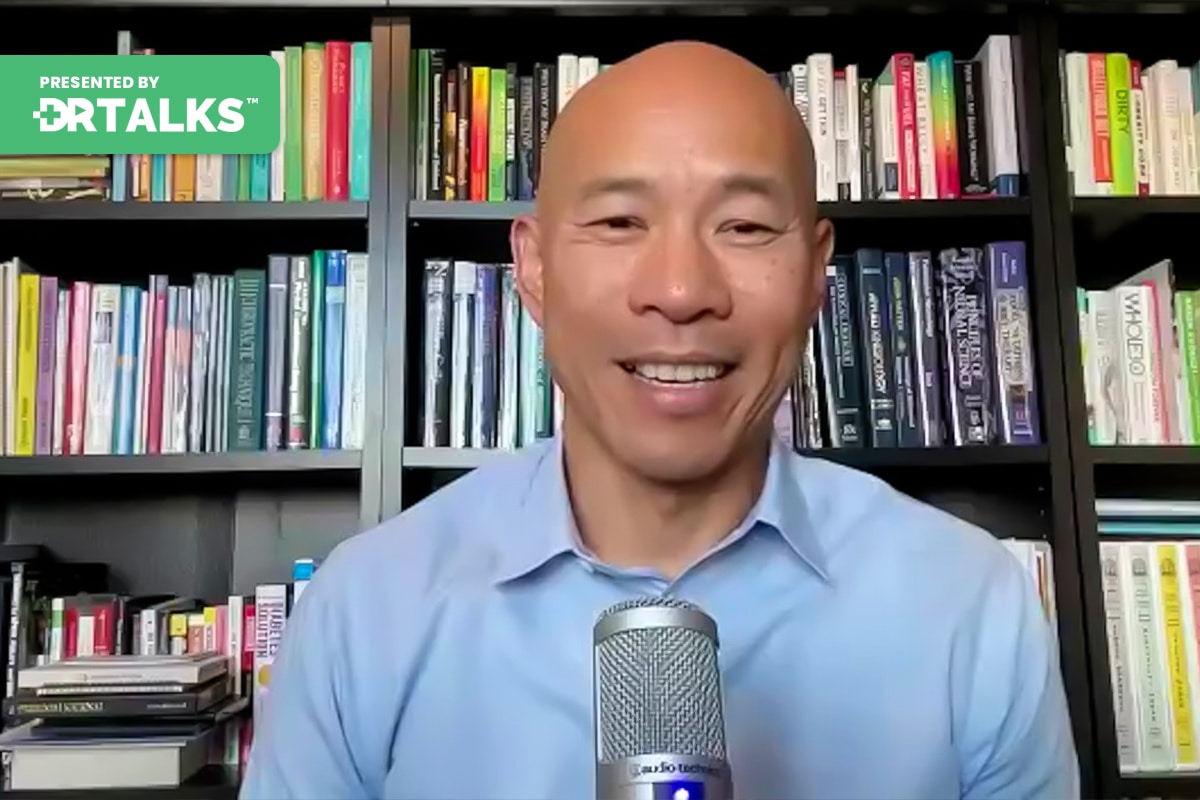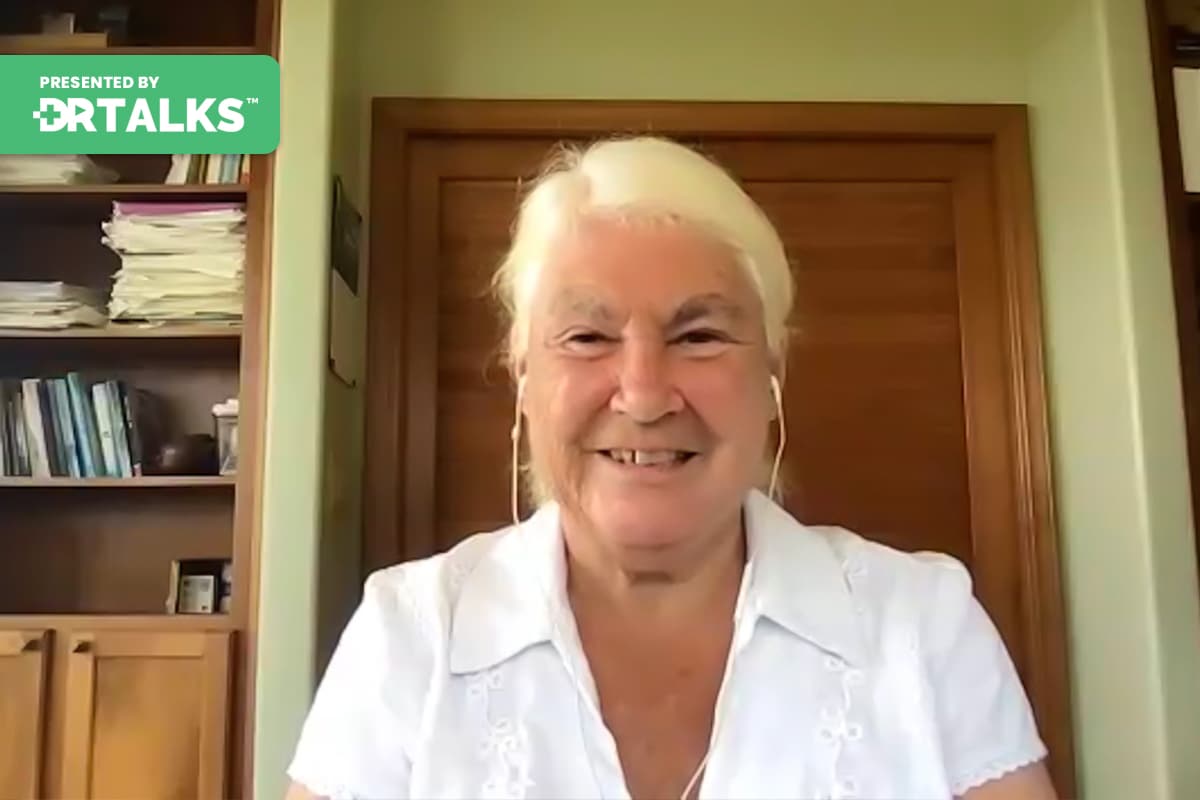Join the discussion below

Sinclair Kennally, CNHP, CNC, is a former chronic illness survivor turned health activist. As an award-winning expert on chronic digestive illnesses, CEO of DetoxRejuveNation.com, and host of Your Health Reset Podcast, she's on a mission to help people discover the real reasons behind their health issues, and take their power... Read More

Kelly McCann, MD, passion for understanding why certain people develop specific conditions drove her beyond conventional medicine to study first Complementary and Alternative Medicine, then Integrative Medicine, Functional Medicine, and Environmental Medicine, which led to an exploration of chronic infections and illness due to mold exposure. As a practicing Internal... Read More
- Understand the impact of Mast Cell Activation Syndrome (MCAS) on your gastrointestinal health
- Learn about the difference between histamine intolerance, food sensitivities, allergies, and MCAS
- Explore low histamine diets, supplements, and lifestyle treatment options for MCAS
- This video is part of the Reversing Chronic Gut Conditions Summit
Related Topics
Autoimmune Disease, Autoimmunity, Chronic Illness, Detox, Gut Health, Inflammation, Lymph, Mast Cell Activation, Mcas, Mitochondria, Mold, PEMF, Rest, ToxinsSinclair Kennally, CNHP, CNC
Welcome back to another interview. We are continuing our discussion of Reversing Chronic Gut Conditions. I am your host, Sinclair Kennally. And I am joined by the wonderful and dedicated Dr. Kelly McCann. And she is an expert on Mast Cell Activation Syndrome. And we are going to unpack what that means today, how it might be actually impacting you whether or not you are aware of it, and the differences between that and histamine sensitivity, and why this is proliferating right now, it is not just increasing awareness. Thanks to Dr. Kelly’s tireless advocation efforts as well as a few other wonderful folks at the space. And let us talk about it. Let us unpack all of this. I really want Dr. Kelly here for you guys today because I think mast cell is really poorly understood in the role of gut health right now, especially these chronic gut condition cases that just do not seem to be fixed with these quick cleanses. Welcome, Dr. Kelly. We are glad you are here.
Kelly McCann, MD
Thank you, Sinclair. So nice to be here.
Sinclair Kennally, CNHP, CNC
Awesome. Talk to us a little bit about your work and how you got obsessed with mast cell and what does this mean for you in your practice, why is this such a focus for you?
Kelly McCann, MD
Well, my practice is really medical mysteries and trying to figure out what is going on with people. And most of my patients tend to have mast cell symptoms, although I did not really realize that right away. I was looking at mold and chronic Lyme disease and other chronic infections, as well as environmental toxicants. And we now understand that people who have these issues often have some percentage of them, in my practice, a very large percentage of them, these things trigger the condition of hypersensitivity and inflammation that we call mast cell activation syndrome. And that was why I had to get into my cell because everyone was walking in with it. And even patients who had been patients for a long time who just could not seem to get, they just were not getting any better. Looking through the eyes of mast cell activation, all of a sudden the light bulbs are going off for myself, and the patients, and we are gaining traction and getting them better. For me, it was helping them. And then simultaneously I have had my own kind of health journey because I have been exposed to mold, I have Lyme disease and Bartonella and everybody has environmental toxins, that plays a role, too, and started having a lot of reactions, itchy skin, lots of food sensitivities. And I have my own story of a health journey with these kinds of conditions.
Sinclair Kennally, CNHP, CNC
Yeah. I think sometimes I mean, it is hard to go through. But I am so grateful for my chronic illness journey now and how much suffering and struggle there was because I have got this empathy for what our clients and students are going through. And I am so much more committed to finding those nuanced strategies for them. I am so thrilled to share your story today because it is such a great example of turning your mast into your message or your pain into passion
Kelly McCann, MD
Yeah. Thank you.
Sinclair Kennally, CNHP, CNC
Yeah. Okay, cool. You mentioned how this can be some of the symptoms can be misunderstood that mast cell dysregulation and mast cell activation syndrome. Can you share, just here at the top, what kind of symptoms should people be looking for?
Kelly McCann, MD
Sure. The definition really in my mind is multiple symptoms and multiple systems of a body. And it is not just about somebody with allergies or somebody with skin issues, it is going to be somebody who has allergies and skin issues and for our purposes today, gastrointestinal issues and maybe cardiac issues, chronic pain, chronic fatigue, intestinal I am sorry, interstitial cystitis or bladder issues, difficult periods or endometriosis, any system in the body. If you have multiple systems involved that are inflammatory or allergic or hypersensitive in its presentation you really have to start thinking about mast cell activation.
Sinclair Kennally, CNHP, CNC
That is really well said. Okay. If we slow down here it seems like a good spot to really define what mast cell activation syndrome is because we all have mast cells.
Kelly McCann, MD
Yes. We all have mass cells. We love our mast cells, they love us. And their job is to protect us from foreign invaders. And they are born in the bone marrow, they are related to our red and our white blood cells, they are born in our bone marrow, and they travel to the periphery and they line the areas of interface between ourselves and the outside world, they are in our skin, they are in our respiratory tract, they are in our entire GI tract from the mouth all the way down there in our lungs. And they have a really high affinity for our nervous system, our vascular system. We have mast cells in the brain and they are constantly looking for foreign invaders. And when they perceive something that is a foreign invader or a threat they release their inflammatory mediators, we call these cytokines or chemokines. We now know the term cytokine, that is a chemical messenger of inflammation things like histamine and serotonin, heparin. These things can be released and then it sends signals to the rest of the body that there is danger, there is a problem and you get an inflammatory reaction.
Sinclair Kennally, CNHP, CNC
Specifically about gut-related issues, folks who have been struggling with these chronic conditions for quite some time whether it is a tribute to autoimmune disease or attributed to food sensitivities and intolerances and allergies or whatever people are assuming the root causes. How would they know if Mast Cell Activation Syndrome is playing a role for them?
Kelly McCann, MD
Good question. If you have gastrointestinal issues and you can have symptoms, any sort of GI symptom will qualify you which is why you are watching this summit, gas bloating, diarrhea, constipation, heartburn, anything like that, an autoimmune condition in the gastrointestinal system qualifies too. But the idea is to think about all the rest of your systems, do you also have fatigue, mood issues, other allergy-type symptoms in the respiratory tract, upper respiratory, do you have cardiac symptoms, palpitations, chest pain, do you have autonomic nervous system problems, this might be you feel dizzy and lightheaded when you stand up because your heart rate is shooting up or your blood pressure is dropping, do you have bladder issues where you have urinary frequency, urinary urgency, urinary incontinence, or have you been diagnosed with frequent recurrent urinary tract infections or interstitial cystitis? For the women listening, that might be terrible periods, very painful periods, heavy bleeding endometriosis. For men that might be a prostatitis or pelvic floor dysfunction. And then there is a whole host of other potential symptoms in the general urinary tract. But we see a lot of bone pain, we will see a lot of joint pain, nerve pain, and tingling neuropathy-type symptoms and these can all be associated with mast cell activation now. And for those listeners out there, how many other systems are impacted in nearby besides your gastrointestinal system? If you have got one, maybe you do not have a mast cell, if you have three, four, five, six, you check in all the boxes when you go to the doctor’s office on the review systems then it is highly likely that you could be dealing with mast cell activation.
Sinclair Kennally, CNHP, CNC
This is so interesting. Because back when I was struggling with my health I certainly fit the bill, as you describe it today. But because I did not have the histamine stuff, I did not have sinus stuff, I did not have flushing when I ate and all these other symptoms, we never thought of that as a part of my picture whereas my goal was the very typical histamine intolerance allergies up here, immediate skin issues from different foods that were improperly selected or repaired, we were dealing with it for him and never thought about it, and I was like, all my symptoms are just basically Lyme and mold. Yeah.
Kelly McCann, MD
Yeah. You guys are a classic example of the picture that we think of and then you probably had mast cell activation too. It just presented differently. You do not have to have allergies, you do not have to have histamine issues. And that is dependent upon the makeup of the mast cells themselves. If you have different inflammatory mediators that are getting released by the mast cells, and we do not necessarily know all of these details. And the mast cells can differ from person to person and place in your body. It makes it very complicated. That is one of the challenges with this is that it looks like everything in anything. That is one of the really big challenges. But I find that when people are sensitive and you are doing all the things for the other conditions that you have and you are not making much progress or you can not tolerate the treatments, oftentimes that is it and that is a situation where we are dealing with mast cell activation.
Sinclair Kennally, CNHP, CNC
You have touched on a couple of words that I really want to unpack with the audience here. Before we dig further specifically into mast cells, you mentioned histamine intolerance and food sensitivities, and allergies, how can people understand the difference and how should they be thinking about this in a useful way?
Kelly McCann, MD
Histamine intolerance is really when your body does not make enough enzymes that break down histamine. People have heard of lactose intolerance. Lactose intolerance is where you do not make enough of the lactase to break down the lactose. And you can take an enzyme, you can drink milk that does not have it, there is things to do. With histamine intolerance, it is really just that. And you can have a lot of symptoms with histamine intolerance because there could be an overabundance of histamine and your poor little DAO enzymes that break down histamine just are not capable of keeping up with the demand or it could be that you are really deficient. That is histamine intolerance. And most of the symptoms are going to be focused in the GI tract, but you can have some mild systemic symptoms as well, and you can have histamine intolerance and mast cell activation too, you can have them both simultaneously. For food sensitivities and food allergies. The definition for food allergy is it has to be mediated by a protein in your immune system called IGE. And these are the immunoglobulins that a tradition allergist will be able to identify on a blood test or with skin patch testing and say, okay, you have an allergy. And typically those are thought to be more concerning. People can have anaphylaxis and swelling and die from an allergy. But food sensitivities are mediated by different things and the immune system, could be IGT, could be some other things, can be white blood cells, but it is not typically as life-threatening but it can be life-altering for sure. And I mean, I can go on but go ahead.
Sinclair Kennally, CNHP, CNC
Please do. Yeah. This is so, to make these distinctions, everybody talks around them as if the audience already understands them. Let us slow down and really cover this.
Kelly McCann, MD
Sure. Most people who have food reactions they are going to be food sensitivities. You can also have food intolerances and that would be probably, again, with inability to break down dairy, that would be a dairy intolerance. Because of a lack of an enzyme, you can have celiac disease which is an autoimmune condition, but the vast majority of people are going to have food sensitivities. And this is part of the immune system that is saying this thing is not good for you and it can cause a whole host of symptoms, you can have skin symptoms, you can have a drippy watery nose, or itchy eyes even though you are eating a food. It does not make a lot of sense that you are having those symptoms, but they are food-related. Some people get headaches and migraines from food sensitivities, joint pain, bone, bone pain, muscle pain, and fatigue. I have had patients who, they will eat a food that they are sensitive to, they will get all sorts of gastrointestinal symptoms as well as some of these other symptoms. Food sensitivities can really destroy, not destroy, destroy is a strong word, really make your life pretty miserable if you can not figure that out. And that is really where we start with most patients is the thing that you have the most control over is what you put in your mouth. And we need to clean up the diet, we need to identify those foods that you are sensitive to and pull them out of the diet so you can see that over the course of a couple of weeks of being on an elimination diet, it tremendously helps, add those foods back, you feel like you got hit by a bus, you will know what your problems are.
Sinclair Kennally, CNHP, CNC
Yeah, exactly. This is so important because the bio-individuality is very real. And in our gut courses, we are working with people who have chronic conditions. And it is really important to understand you cannot poke the bruise you are trying to heal over and over again, all day long and expect great results, some investigation that is required.
Kelly McCann, MD
Some sacrifice and some investigation if you want to get better.
Sinclair Kennally, CNHP, CNC
Yeah, exactly. One of the things that I really want to give you time to talk about today is eating in that low histamine diet way and what can that do for MCAS and what are the limitations of it? And then we could talk about some other methods to help support people through this process.
Kelly McCann, MD
Sure. There are some foods that are generally high in histamine things like beef and avocados, and oftentimes citrus tomatoes, those are very high in histamine. And in some patients who have histamine intolerance and mast cell activation, those foods can make them feel worse, it can exacerbate all of their symptoms. And they get a benefit, they may find or you may find, you get benefit if you put yourself on a low histamine diet. And I do recommend that my patients who have mast cell activation, especially if they have GI symptoms, allergy-type symptoms to put themselves on a low-histamine diet. But even if you do not have those as your primary symptoms of mast cell it still may be very valuable because we want to lower the reactivity of the mast cells across the board. And trying to do a low histamine diet is worth it because you could improve your symptoms 20, 40, 60% and that is huge when you have been struggling for a long time.
Sinclair Kennally, CNHP, CNC
Yeah.
Kelly McCann, MD
Really important. And part of the other things about a low histamine diet, just to give a few more ideas, vinegars caused problems, aged foods cause problems. The longer a food has been around the more bacteria are able to grow and the more histamine is in that food. And generally, you want to avoid leftovers, they can be very problematic for people. And then on the flip side too, I have patients with mast cell activation who get no benefit whatsoever from eating a low histamine diet. We do it as a trial because I am never going to know who will benefit and who will not. You kind of have to go through that process and it can be very telling.
Sinclair Kennally, CNHP, CNC
Okay. That is super helpful to understand. One of the things that I also want to give you a chance to talk about today is some supplements and some natural health methods that can help people who are working with MCAS and working through it. And it is really tempting to go right to those solutions, but I think that it would be really beneficial if we talk first about MCAS from the perspective of like.
Kelly McCann, MD
What is causing it?
Sinclair Kennally, CNHP, CNC
Yeah. This phenomenon I am seeing persist in gut health conversations is very frustrating. And I understand why people are not getting well, they are talking about SIBO, leaky gut, MCAS, and a number of conditions as if those are the root cause when nothing could be further from the truth. Yes, it is important to understand what you are working with and what it has developed into if you can attach a nice accurate label to it but that is not the destination. And managing that label is not the destination because it is not actually the root cause. I would love to give you a chance to myth-bust a little bit about MCAS today. And let us start by talking about the root causes that you see really prevalent for Mast Cell Activation Syndrome.
Kelly McCann, MD
Absolutely. Thanks for asking. Mast cell activation genetically is supposed to be present in 17% of the population, let us say roughly 20%, one in five. That means one in five people have a genetic predisposition to develop mast cell activation syndrome. I am one of them. And that does not mean that your genetics are your destiny. Just like when we are talking about autoimmune conditions being triggered by something mast cell activation syndrome is triggered by something. And typically for those people who have mast cell you can go back in your history and you can look at how maybe you were an allergic kid, maybe you had eczema, and then you can look at the progression of how your symptoms have increased over time and be able to say, well, we moved into this house and I think there was mold there and I developed asthma and GI issues and then we moved into this other house that had a lot of air pollution because it was right next to a busy highway and I developed even more symptoms. The truth is we live on a planet that is really toxic and it is only getting more and more toxic. And some of the biggest drivers of MCAS are environmental chemicals and toxins. And we can talk ad nauseum about that mold exposure is huge, it is one of the biggest drivers in my experience of mast cell activation syndrome and SIBO, and leaky gut, and all of these GI issues. If you are not getting better in a certain situation and you are doing all the things and you are taking all the supplements and you are doing all the detox and you are not getting better you are likely living or being exposed to mold in your environment and you really need to investigate that.
Sinclair Kennally, CNHP, CNC
Yes. Hallelujah. Amen. Thank you.
Kelly McCann, MD
You are welcome. The other thing too is many times people can be in a moldy house and maybe you had Lyme disease or a tick bite when you were younger and you were fine when you were younger but because mold causes suppression of your immune system now your immune system can not keep the chronic infections that have been previously dormant and dealt with in your body, now they come to life and you have even more symptoms. I see this very commonly. And not only that, there are many other factors. And the expansion of the tick population is also growing because of global warming, etc. There are more ticks and more places that people can get infected by things like Lyme disease and they may not even know it because some of these ticks are so small. That complicates many of your GI symptoms as well.
We have got toxins, we have got mold, we have got chronic infections and then I have to say EMF is another huge trigger for mast cell activation and for chronic health issues too. And it may not be the primary trigger but it is not helping. And we are bathing in EMF on a regular basis, especially now that we are doing so much electronically and over the internet, it is a beautiful way to connect but it also means that we are really inundated with EMF. Those are my four top things that tend to trigger mast cell activation and they really need to be investigated. And it takes work both on the part of your practitioner and yourself to identify what are the things that are driving your symptoms simultaneously while you are trying to calm down all the symptoms.
Sinclair Kennally, CNHP, CNC
I think that is a really beautiful recap of what we are seeing and why we are seeing such a rise in mass health issues. When we are talking about EMF guys, just to slow down and unpack that a little bit, we are not just talking about wireless radiation we are talking about dirty electricity. Wireless radiation is your Wi-Fi router, your smart devices, and stuff. And we are also talking about the electricity, the noise on the wires, we are talking about the electromagnetic fields that are coming off of your circuits and of course, lighting. It is a big umbrella term. Do not just think about cell phone hygiene which is great, but you might still be getting advice.
Kelly McCann, MD
Yeah. And having people who can come out to the house and evaluate your house. I found in my house it was really the electrical frequencies so that the electrical in the walls behind the bed that were causing the biggest problem for having a sanctuary bedroom, it was not the Wi-Fi, it was not the router, it was the electrical and then for some people it is actually the magnetic. The magnetic is one that is virtually impossible to do anything about because it is related to how the water lines and the electrical lines are coming in from the street. And I have a patient, actually, a whole family who live with the magnetic is so high in their front bedrooms that they really need to leave, they really need to move out of that house because you can not remediate that.
Sinclair Kennally, CNHP, CNC
Right. And this is so important because so much about EMF mitigation is simple or free and these are about daily habits and then a lot of it is actually structural issues and you need to know the difference. So interesting. I know we get people with serious mast cell issues in our practice. And we actually require every client to do EMF mitigation for this reason because you guys can take all the supplements you want in the world, you have already figured out, you would not be at the summit, that probiotics ain’t going to do it for you so let us look at the other layers, right?
Kelly McCann, MD
Right. Absolutely.
Sinclair Kennally, CNHP, CNC
So interesting. Yeah. There is a lot of alignment here. Okay. Let us talk about some of your favorite lifestyle, natural health, and mind-body options if you are recognizing yourself in that, Dr. Kelly is sharing. Let us look at what next steps you can take.
Kelly McCann, MD
I think about massage activation as a three-legged stool or I should say a three-legged stool is how we need to approach treatment for massage activation. We have got your immune system, your mast cells which are hypersensitive and going rogue and we need to dampen them down. And I will come back to that. And then you have got your autonomic nervous system which is heightened, stuck, and sympathetic fight or flight or freeze that you absolutely must address. And then you have your limbic system which is the ancient part of the brain where we process our emotions and that part of your brain perceives that you are not safe. And that absolutely must be dealt with. And for a lot of my supersensitive patients they have to deal with that part first and the vagus nerve part before you can even start adding in supplements and trying to dampen things down.
In terms of my favorites, it is really about what is going to work for each individual person. And I recommend each person look at what are the different options out there. There is the Gupta program, there is DNRS with Annie Hopper, there is Primal Trust with Kathleen King, there is so many other limbic system, training programs out there, pick the one that resonates with you. If you think the British accents are sexy, maybe Gupta is for you. But other people resonate better with Annie Hopper. Whichever way you decide to go you have to commit to that. You can not just watch the videos and think it is going to happen this is all hands on deck, you are 100%, 150% in changing the way that your brain is functioning. And the people who commit to that, who see this as a lifestyle, as an ideally spiritual practice, those are the people who are going to get better. Now, I am not saying that Gupta is a spiritual practice, but the whole idea of changing the way you relate to yourself in the way that you relate to your body and your life has to change.
Sinclair Kennally, CNHP, CNC
Yeah, that is it.
Kelly McCann, MD
Thank you. And then the same thing too with the vagus nerve stuff, there is meditation, neurofeedback, you have got so many different devices. Pick the thing that is going to resonate for you, if you like sound and sound healing, then do the sensation, a sound listening program that might be the thing that is best for you. Pick your tools and use them. And then in terms of supplements and medications there is no one right way, again, it is really individualized and personalized and I do not have the answer, Sinclair does not have the answer, you have to go through and you have to try them. Because some people respond fantastically to over-the-counter antihistamines and I have patients try them all. And you have to walk through each one because one is going to be magic and one is not going to help at all. I will use H2 blockers and there is only one on the market right now, Pepcid, but not often can be a game changer for people and I know we are in the health base and we like to do natural medicine but sometimes they really work. And I would not dismiss pharmaceuticals simply because you want to do everything natural, it may be the ticket that really makes a difference for you. And then there are tons of supplements, when I was preparing for my mast cells summit, I found literature for 65 different supplements, there is no shortage of things to try.
Sinclair Kennally, CNHP, CNC
What are the other ones that your patients end up relying on?
Kelly McCann, MD
Quercetin is probably the one that is on everybody’s list. Quercetin works fabulously, there is literature to support that, it is even better than Crumlin. I love Quercetin you. There are a couple that maybe get less press that I really have found very helpful, pycnogenol is one of them. Pycnogenol is French marine bark. And it is got some amazing literature for all different sorts of things including hair growth, so, hey, why not? I love pycnogenol. I love Perlucin. I use peremine from metagenomics. I find that that one’s really great for people who are more sensitive, who can not do the Quercetin. I love turmeric, of course. Turmeric has a wonderful plethora of literature for so many different reasons. I like resveratrol a lot too. Resveratrol can be very helpful for mast cell activation. Yeah. It is got so many other benefits too. PEA can be utilized for pain and for mast cell activation, coming down that histamine. Luteolin is another one that has good transference across the blood-brain barrier and some can be used for a lot of neurological things. Let us see.
Sinclair Kennally, CNHP, CNC
That is a good one.
Kelly McCann, MD
I am sorry.
Sinclair Kennally, CNHP, CNC
That is a good one. I forgot about that one.
Kelly McCann, MD
Yeah. I love luteolin. And there is boswellia, bromelain, there are no histamine probiotics, and there are so many things out there.
Sinclair Kennally, CNHP, CNC
So true. But I hope that people are hearing in this interview that this could be a part of their picture in a way that they had previously dismissed, especially if they do not have the classic is to be histamine presentation, or even if you do that more of your symptoms may have a relationship to your mast cell behavior than you had previously understood. And it requires a multilayered approach once this has developed. Understand your root causes and work with somebody or work with a program that really understands and helps you how to chip away at those in a way that is right for you while you do symptom management. Because you could spend your whole life treading water, trying to keep your head above water with the stuff. And my hope for you and I know for Dr. Kelly as well, her work, is that you really take your health into your own hands and see how far you can get.
Kelly McCann, MD
Absolutely. And there is always hope. There is always an ability to get better no matter where you are. I have seen people who are absolutely debilitated really come back and get their lives back. And it is such an amazing joy to be part of that.
Sinclair Kennally, CNHP, CNC
So beautifully said. That is speaking to the magnificent health advocates for themselves in the audience, this is such an important area of medicine that is poorly understood. I would love to give you a chance to end this interview by speaking directly to the practitioners in the audience. What would you like them to know or what do you want them to do?
Kelly McCann, MD
For those practitioners in the audience who are listening, there are so many resources for you to take your ability to help people to the next level. I am on the board of two professional organizations, The American Academy of Environmental Medicine which is one of the oldest professional academies around. And it offers a wealth of educational opportunity, teaching things like low-dose allergy therapy which is a form of immunotherapy that is transformative and so simple to learn and implement for patients who have sensitivities and allergies, I highly recommend that training. We were having a conference in the fall in San Antonio, for those of you who are interested. The other organization that I am on the board of is the International Society for Environmentally Acquired Illness, or ICI, again, another fantastic relatively new organization. And were really, in my mind, at the forefront of teaching practitioners how to think about complex chronic illness, it is mold, it is environmental toxins, it is chronic infections and how do we start to wrap our heads around all of these things that are happening with patients and teaching you practitioners how to navigate and help these patients along.
Sinclair Kennally, CNHP, CNC
It so good. Thank you for your advocacy and for your dedication to spreading the word. It is so inspiring, Dr. Kelly. And I hope that everybody listening today has gotten, I mean, there is just so many gems in that because I know everybody got something out of us.
Kelly McCann, MD
Yes, I hope so too. Thank you so much for spending time with me.
Sinclair Kennally, CNHP, CNC
You are welcome. Where can people find you in your work?
Kelly McCann, MD
I have a brick-and-mortar practice in Southern California. You can find me at thespringcenter.com, you have to put that in front of it. And also drkellymccann.com. That is my online business, you can find blogs there, and by the time this launches I will have a course it is called Mast Cell Regain Control. And it is really focusing on environmental toxicants in your life, in your home, in your health, in your habits, and your hobbies and how to start to reduce those and eliminate those to lower that burden and help get yourself better.
Sinclair Kennally, CNHP, CNC
Thanks so much. Great to talk to you today.
Kelly McCann, MD
Thank you.
Downloads

